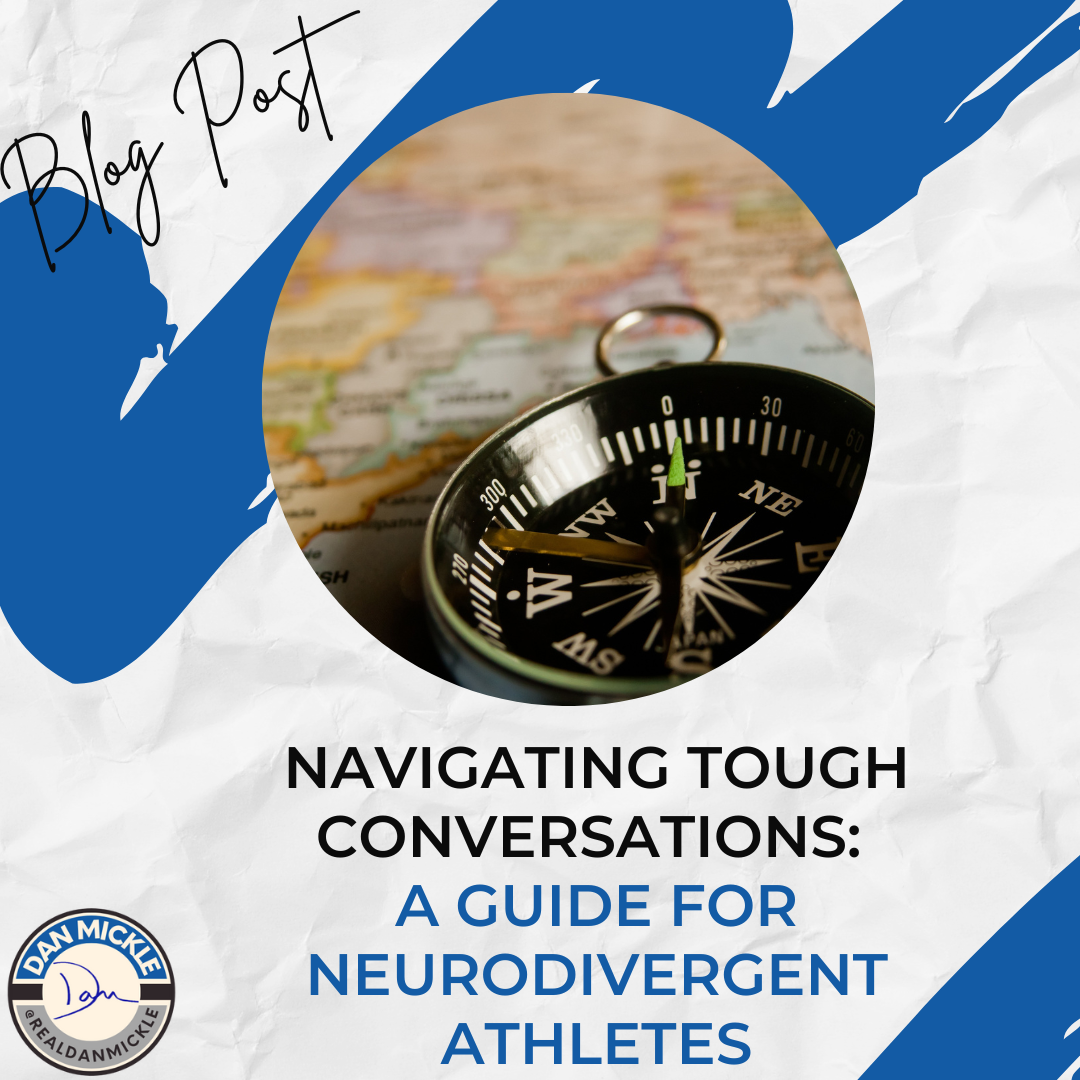When you’re a young athlete, navigating your way through tough conversations with your coach can feel like you’re entering a battlefield, armed with only your words. The pressure to perform, the anxiety about being misunderstood, and the fear of confrontation often prevent athletes from advocating for themselves. But here’s the thing: advocating for yourself is a crucial skill, especially if you’re neurodivergent. It’s about ensuring that your unique needs are understood and supported, allowing you to thrive both on and off the field.
For neurodivergent athletes, this becomes even more important. Whether it’s ADHD, autism, or any other condition on the spectrum, the way we communicate and process information might differ from the norm. And that’s okay; it’s simply a matter of finding the right words to bridge the gap between you and your coach.
Why Self-Advocacy Matters
Imagine you’re an athlete who struggles with anxiety or sensory sensitivities. The sound of a whistle might send you into a panic, or maybe the noise from the crowd feels overwhelming during a match. If you don’t have the tools to communicate that to your coach, the result could be a mental block or a performance issue that doesn’t reflect your true abilities. This is where self-advocacy comes in. When you can speak up about your challenges, you help your coach understand what’s going on and how they can best support you.
Advocating for yourself also builds trust. When a coach knows they can rely on you to communicate openly, they’ll be better equipped to help you improve. It’s a win-win: you get the support you need, and your coach gains insight into how to work with you as an individual.
Breaking Down the Conversation: What You Need to Know
Tough conversations don’t have to be overwhelming. Here are a few steps that can help you approach these moments with confidence:
-
Know What You Need
Before approaching your coach, take some time to reflect on your needs. What specific challenges are you facing? Are you feeling overwhelmed by the pace of practice? Do you need extra time to process feedback? Understanding your needs will make it easier to express them clearly. -
Choose the Right Time
Timing matters. Avoid trying to have a difficult conversation in the heat of the moment, right after a game, or during a stressful practice. Instead, find a calm time when both you and your coach can focus on the conversation. Perhaps after practice or even in a scheduled meeting. -
Use “I” Statements
Framing your feelings with “I” statements takes the pressure off the conversation and makes it less likely to come across as accusatory. For example, “I feel overwhelmed when there’s a lot of noise around me during games” is less confrontational than, “The noise during games makes it hard for me to focus.” -
Be Honest, But Be Open to Feedback
Honesty is key, but so is being open to feedback. Your coach may not fully understand what you’re going through at first, and that’s okay. Be patient, and allow the conversation to evolve into a discussion about how both of you can make adjustments to improve the situation. -
Set Clear Expectations
Sometimes, the conversation will result in a plan of action. Set clear expectations for yourself and your coach. If you need extra time to process instructions, ask for that. If you’re working on a mental performance skill like focus or resilience, outline how you can practice that both in and out of practice.
The Role of Coaches: Creating Space for Understanding
Coaches, it’s important to recognize that every athlete is different. One-size-fits-all approaches don’t work for everyone. Being attuned to the needs of neurodivergent athletes can drastically improve both performance and overall well-being. And that begins with creating a safe, open environment where tough conversations are welcomed.
If you’re a coach working with neurodivergent athletes, take the time to learn about their unique needs. Ask questions, encourage communication, and make adjustments where necessary. Sometimes, it might be a matter of offering a little extra time, changing the environment, or offering more direct, clear instructions.
Moving Forward
Tough conversations are never easy, but they are essential for creating an environment where athletes feel heard, supported, and empowered. By advocating for your needs, you help shape a more understanding and effective relationship with your coach, one that fosters growth both on and off the field. For neurodivergent athletes, especially, these conversations are an opportunity to create the space you need to thrive.
If you’re looking to build mental performance skills, whether it’s gaining more focus, boosting confidence, or developing resilience, there are opportunities to dive deeper into these topics. One such opportunity is the Mental Performance Boot Camp this July, where athletes will gain practical strategies that can be applied to both sports and daily life. Feel free to check all my upcoming events.
The goal here is to keep the conversation going, whether it’s with your coach, your parents, or with yourself. It’s all part of building a better mental game, because who said navigating tough conversations can’t be your secret weapon? Each conversation you have is an opportunity to grow stronger, more confident, and more self-aware. When you express your needs and challenges, you take control of your mental game. Over time, these conversations become less intimidating and more empowering, allowing you to unlock new levels of performance and self-discovery.


